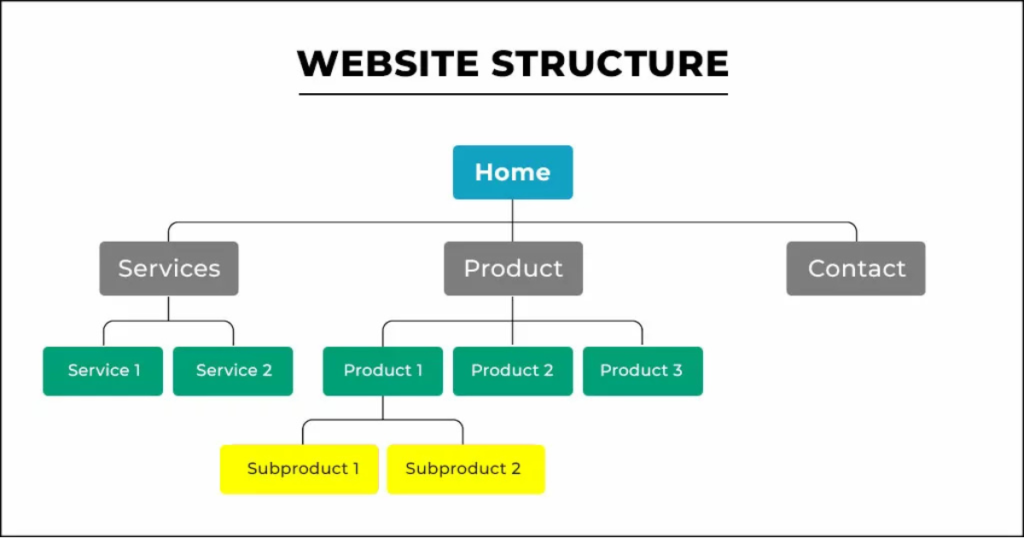Website Development: A Step-by-Step Ultimate Guide
Takori
February 14, 2025

Why Website Development is Crucial for Online Success?
In the current digital era, having a website is becoming essential rather than optional. Whether you are a business owner, entrepreneur, or blogger, a website serves as your online identity. A well-developed website can drive traffic, improve credibility, and increase conversions. In this guide, we will walk you through the essential steps of website development, from planning to launching your site, with SEO-friendly techniques to ensure high rankings on search engines.
Step 1: Planning Your Website for Success
Before diving into development, you need a solid plan. This phase sets the foundation for your website’s success.
Key Considerations:
Define Your Purpose: Is your website for business, blogging, or e-commerce? Identify Your Target
Audience: Who will visit your website, and what are their needs? Choose the Right Domain Name: Keep it short, easy to remember, and SEO-friendly.Select a Reliable Web Hosting Provider: Choose a hosting service that ensures speed and security.
SEO Tip: Use keywords in your domain name if possible, but keep it natural and brandable.

Step 2: Designing an Eye-Catching and User-Friendly Layout
Your website’s design plays a crucial role in user experience and engagement.
Best Practices for Website Design:
Mobile Responsiveness: Make sure your website appears fantastic on all devices by making it mobile responsive.
Easy Navigation: Use a simple menu structure so users can find information quickly.
Fast Loading Speed: Optimize images and use a caching plugin to reduce load time.
Clear Call-to-Action (CTA): Encourage visitors to take action, such as signing up or making a purchase.
SEO Tip: Optimize images with ALT tags and use descriptive filenames to improve search rankings.

Step 3: Choosing the Right Website Development Platform
Selecting the right platform depends on your needs and technical expertise.
Popular Website Platforms:
WordPress: Best for blogs and business websites.
Shopify: Ideal for e-commerce stores.
Wix & Squarespace: Great for beginners with easy drag-and-drop builders.
Custom HTML & CSS: Suitable for developers who want full control over design and functionality.
SEO Tip: WordPress is highly SEO-friendly with plugins like Yoast SEO and Rank Math to optimize your content.

Step 4: Developing Your Website with Essential Features
Now that you have a design and platform, it’s time to build your website.
Key Features to Include:
Homepage: The first impression of your website, featuring an engaging introduction.
About Us Page: Share your brand story and build trust with visitors.
Contact Page: Include contact forms, email, and social media links.
Blog Section: Helps with content marketing and improves SEO.
Product/Service Pages: Clearly outline what you offer with compelling descriptions.
SEO Tip: Use internal linking to connect relevant pages and improve website structure.

Step 5: Optimizing for SEO and Higher Google Rankings
Increasing organic traffic requires Search Engine Optimisation (SEO).
SEO Strategies for Website Development:
Keyword Optimization: Research and integrate relevant keywords naturally into content.
Meta Titles & Descriptions: Craft compelling and keyword-rich meta tags.
URL Structure: Make use of concise, keyword-rich URLs.
Image Optimization: Compress images and use descriptive ALT tags.
Mobile Optimization: Ensure your site is responsive for mobile users.
SEO Tip: Use Google Search Console and Google Analytics to track website performance and identify areas for improvement.

Step 6: Ensuring Security and Website Performance
Security and performance are critical for user trust and SEO rankings.
Best Practices for Website Security:
Use an SSL Certificate (HTTPS) for secure browsing. Keep plugins and themes updated to prevent vulnerabilities. Enable website backups to protect against data loss. Use a security plugin like Wordfence (for WordPress users).
SEO Tip: Google prioritizes secure websites, so having an SSL certificate improves rankings.

Step 7: Testing and Launching Your Website
Before going live, test your website to ensure it functions properly.
Checklist for Testing:
Check all links and navigation. Use tools such as Google PageSpeed Insights or GTmetrix to test the speed of websites. Verify mobile responsiveness on different devices. Ensure contact forms work correctly. Once everything is tested and optimized, it’s time to launch your website!

Step 8: Promoting Your Website for Maximum Traffic
After launching, the next step is driving traffic to your site.
Effective Website Promotion Strategies:
Social Media Marketing: Share your website on Facebook, Instagram, Twitter, and LinkedIn.
Email Marketing: Build an email list and send valuable content to subscribers.
Content Marketing: Publish blog posts with SEO-optimized content regularly.
Paid Advertising: Use Google Ads and social media ads to reach a broader audience.
SEO Tip: Consistently updating your website with fresh content improves search rankings and keeps users engaged.

Conclusion
Build a High-Performing Website Today!
Website development is a step-by-step process that requires careful planning, design, development, and optimization. By following these steps, you can create a website that attracts visitors, ranks well on search engines, and drives business growth.
Start building your website today and implement these SEO strategies to achieve long-term success! Contact us today for expert advice and a custom SEO plan! 

- 360DigiSol
Tag Post :
Socialize Your Business Using Social Media Marketing
Recent Post
Dont Hesitate To Contact Us
Stay updated with insightful articles and blogs covering the latest trends in digital marketing, IT solutions, and e-commerce.
